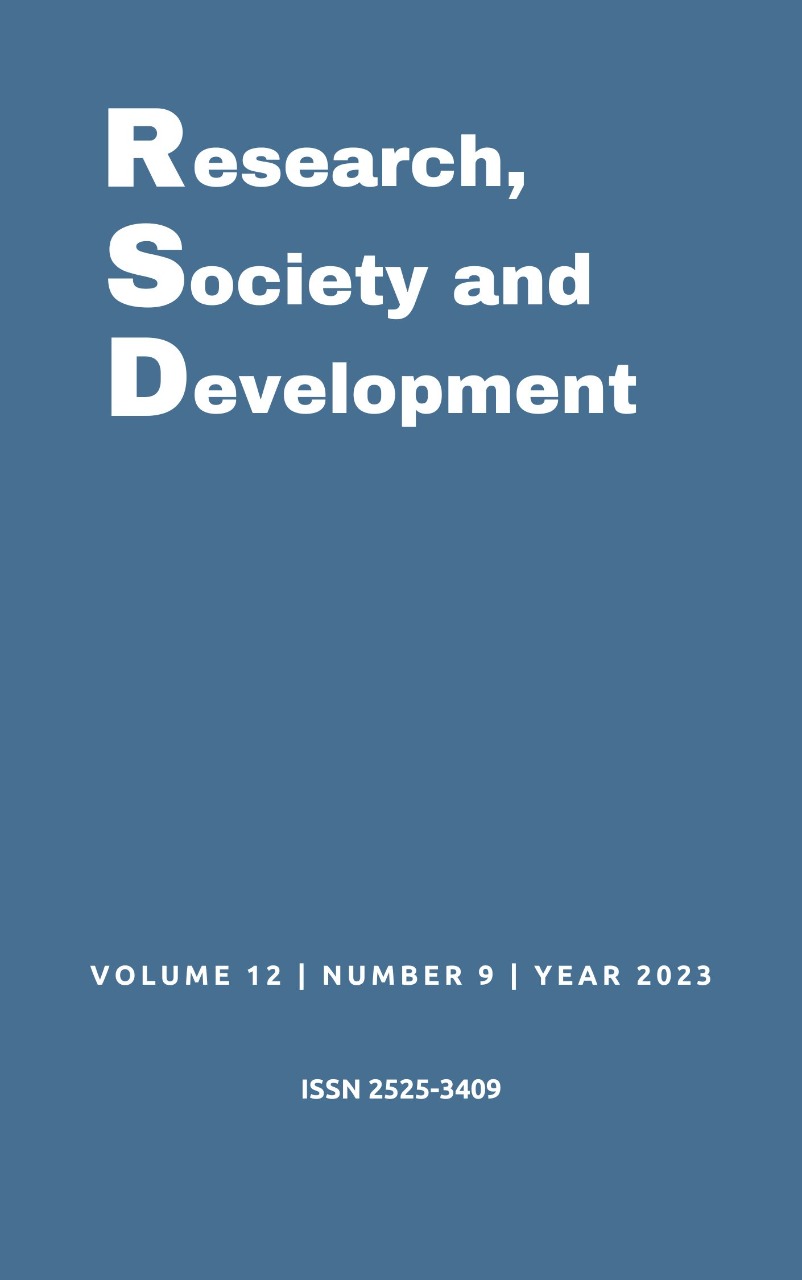Environmental Licensing: An analysis between economic development and conservation
DOI:
https://doi.org/10.33448/rsd-v12i9.43365Keywords:
Environment, Legislation, Preservation, Environmental regularization.Abstract
The objective of this article was to analyze the Environmental Licensing process for evaluate its effectiveness in reconciling economic development and environmental preservation. To this end, the assessment of environmental quality will be studied in the licensing process, which aims to ensure that the proposed activity is carried out in a manner compatible with the preservation and protection of the environment, avoiding significant adverse impacts, where the National Environmental Policy (PNMA), is a fundamental legal framework in Brazil for environmental management and licensing of activities that may impact the environment. The types of license are defined by the legislation of each country and it´s obtaining is an administrative process through which environmental bodies assess the feasibility and conditions for the installation, expansion or operation of enterprises that use natural resources or may cause environmental impacts. The result shows that environmental licensing is a valuable tool in the search for a balance in environmental preservation. However, it is important to recognize the challenges it presents by working to improve the process, ensuring it is effective, transparent and fair for all parties involved. Collaboration between governments, businesses and communities is essential to ensure that licensing fulfills its purpose in an efficient and sustainable way. It is concluded that environmental licensing represents a significant advance in the protection of the environment and the legislation and that it is possible to observe that over the last 40 years the environmental issue has gained prominence in day-to-day concerns.
References
Barbosa, J. O. & Moura, G. G. (2019). Riscos ambientais, resíduos sólidos e qualidade ambiental: algumas considerações. Brazilian Geographical journal: geosciences and humanities research médium. 10(1), 67-76.
Boletim Científico (2010). Relatório de Impacto Ambiental. ESMPU, 9(32/33), 37-69.
Brasil. (1997). Resolução CONAMA 237 de 19 de dezembro de 1997. Disposição sobre o Licenciamento Ambiental. LEX: Legislação Ambiental, Brasília: seção 1.
Brasil. (1981). Lei 6.938, de 31 de agosto de 1981. Dispõe sobre a Política Nacional do Meio Ambiente. http://www.sigam.ambiente.sp.gov.br/sigam2/legisla%C3%A7%C3%A3o%20ambiental/lei%20fed%201981_6938.pdf
Brasil. (2006). Manual de Licenciamento Ambiental. Ministério do Meio Ambiente (MMA). http://www.mma.gov.br/images/arquivo/80020/Licenciamento_ambiental/manual_licenciamento.pdf
Brasil. (2007). Tribunal de Contas da União – TCU. Cartilha de licenciamento ambiental. (2a ed.), TCU, 4ª Secretaria de Controle Externo.
Brasil. (2009). Educação ambiental. Ministério do Meio Ambiente – (MMA). http://www.mma.gov.br/informma/item/8447educa%C3%A7%C3%A3o-ambiental
Conselho Nacional do Meio Ambiente (1997). Resolução nº 237, de 19 de dezembro de 1997. Estabelece diretrizes gerais para o licenciamento ambiental.
Eccleston, C. H. (2017). Environmental Impact Assessment: A Guide to Best Professional Practices. Editora: CRC Press.
Farias, T. (2015). Licenciamento Ambiental: aspectos teóricos e práticos. (4a ed.), Fórum.
Farias T. & Ataíde, P. (2021). Considerações a respeito da compensação ambiental do Art. 36 da Lei N. 9.985/2000. Revista Novos estudos Jurídicos – eletrônicos. 26(2), Mai-ago.
Fiorillo, C. A. P. (2003). Curso de direito ambiental brasileiro. (4a ed.), Saraiva.
Honaiser, T. M. P. (2009). Licenciamento Ambiental e sua importância. Presidente Prudente: ETIC. 5(5), 13.
Instituto Brasileiro do Meio Ambiente e dos Recursos Naturais Renováveis (2009). Processo de licenciamento. http://www.ibama.gov.br.
Ludke, M., & Andre, M. E. D. A. (2013). Pesquisa em educação: uma abordagem qualitativa. (2a ed.), EPU.
Muller, J. (2011). Licenciamento Ambiental. UNOPAR.
Nucci, J. C. (2008). Qualidade Ambiental e Adensamento Urbano: um estudo de Ecologia e Planejamento da Paisagem aplicado ao distrito de Santa Cecília (MSP). (2a ed.), 150 p.
Oliveira, A. I. A. (2005). Introdução à legislação ambiental brasileira e licenciamento ambiental. Editora Lumen Juris.
Pearson Education do Brasil (2011). Obtenção de licenças ambientais (AIA, EIA, RIMA). 170 – 181 p. In: Gestão Ambiental. Pearson Prentice Hall, 312 p.
Pereira, P. J. C. R. (2011). Desafios do licenciamento ambiental de usinas hidrelétricas: um estudo de caso da UHE Itapebi. 125f. Dissertação. (Mestrado em Políticas Públicas, Estratégia e Desenvolvimento).
Programa Nacional de Capacitação de Gestores Ambientais (2009). Licenciamento ambiental / Ministério do Meio Ambiente. – Brasília: MMA. 90 p.
Santos, M. A., Andrade A. L., Silva Junior, O. M., Marins, G. M. S., Ribeiro, P. E. A. M, Boité, P. S. N., & Moraes, V. R. (2022). Hydropower projects and environmental licensing process: how different countries manages the problem. Research, Society and Development. 11(3), e17711326408
Serra, R. C. (2014). Licenciamento de reatores: proposta de uma estrutura regulatória integrada com abordagem em qualidade e meio ambiente para reatores de pesquisa no brasil. IPEN. Universidade São Paulo.
Tauk, S. M. (1991). Análise ambiental: uma visão multidisciplinar. Ed. UNESP/FAPESP. 169p.
Vidal, M. D. (2015). Gestão Ambiental em foco II. Indaial: NIASSELVI.
Downloads
Published
Issue
Section
License
Copyright (c) 2023 Patrícia da Costa Rodrigues; Marielle Rezende de Andrade

This work is licensed under a Creative Commons Attribution 4.0 International License.
Authors who publish with this journal agree to the following terms:
1) Authors retain copyright and grant the journal right of first publication with the work simultaneously licensed under a Creative Commons Attribution License that allows others to share the work with an acknowledgement of the work's authorship and initial publication in this journal.
2) Authors are able to enter into separate, additional contractual arrangements for the non-exclusive distribution of the journal's published version of the work (e.g., post it to an institutional repository or publish it in a book), with an acknowledgement of its initial publication in this journal.
3) Authors are permitted and encouraged to post their work online (e.g., in institutional repositories or on their website) prior to and during the submission process, as it can lead to productive exchanges, as well as earlier and greater citation of published work.


